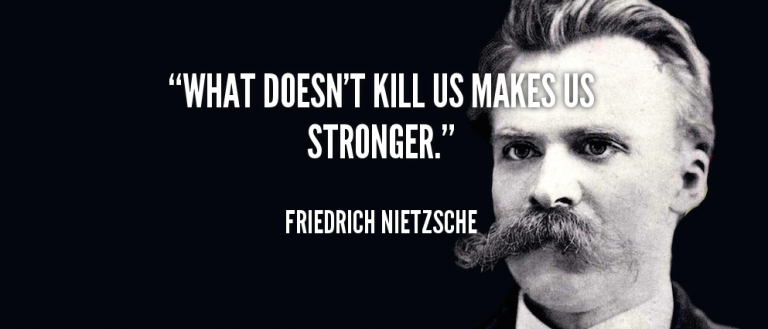
As far as I know, in most religions, vanity and pride are sins (or at least vices). I’m no theologian, but I can only guess that it has to do with putting yourself ahead of (or on par with) the divine.
Conversely, in most religions, faith is considered a virtue. And it’s almost an extension of humility. Faith is about accepting that your senses and reason are insufficient to reveal the true nature behind the universe and existence, and blindly placing your belief in the idea of the divine.
But if you think about it, faith is its own kind of pride or vanity. Faith is the idea that you already have the right idea — and about the biggest thing.
That’s it. You’ve made up your mind nothing is going to change it. You’re right, and anyone who thinks differently is wrong — bless (or damn) their poor, wretched souls.
But where’s the humility in that?
Of course, even science is based partly on faith. After all, the scientific method relies on our senses and our reason. It trusts (only) what we can observe and test. Science has faith in the very faculties that religion deems inherently fallible.
But its humility lies in that everything, no matter what, is always open to re-examination.
So with that, how can we keep ourselves from slipping into a culture of nihilism? To a place where nothing is certain and everything is meaningless?











I think you’re absolutely right about the way most people view faith — both their own and others’. That’s never the type of faith that the Bible encourages, though. For just a couple of examples, it exhorts believers to “test everything and hold on to what is true.” Jesus also set up very concrete, obvious tests that would prove that he was who he said he was. It wasn’t some mystical test that could be argued about. He either died and rose again, or he didn’t.
Whether he did, and what to do with that, are obviously questions that everyone has to deal with personally, but the Bible never encourages blind faith. From beginning to end, it’s about using your mind and not just accepting whatever someone tells you. Seeking God with your whole being and being open to what you find.
There’s no pride in believing something is true because you’ve tested it and found it to be true, but there is pride in thinking you’re somehow better than someone else because you did. That’s certainly quite common in faith these days.
I don’t know my Bible all that well, but you have a point about it encouraging believers to “test everything and hold on to what is true.†But it’s a bit of a paradox to have “faith” in something that you’re supposed to keep testing over and over.
But you were right in suggesting that I was referring to how faith is most commonly practice. For the most part, I have no problem with the Bible. But I often clash with people who obsess over it.
shmee shmee shmee